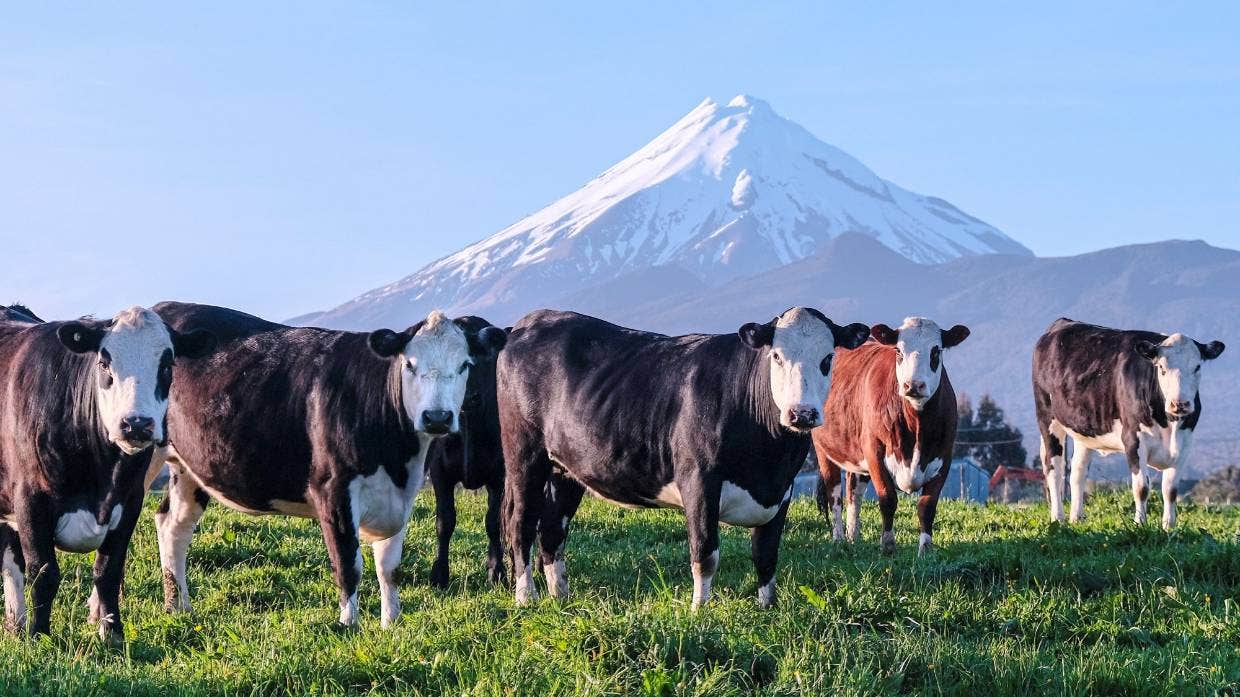The researchers, which compared New Zealand’s on-farm emissions to a range of countries’ footprints across the globe, concluded that when New Zealand beef or sheepmeat is exported, the total carbon footprint is lower or very similar to domestically-produced red meat in those nations.
This is because New Zealand is so efficient at the farm level, which represents about 90-95% of the total carbon footprint. New Zealand’s on-farm footprint was about half the average of the other countries compared in the study.
Based on the research, an analysis by B+LNZ and MIA shows eating red meat 2-3 times a week over the course of an entire year is just under the carbon footprint of a single passenger’s return flight from Auckland to Christchurch.
The Life Cycle Assessment (LCA) study was commissioned by Beef + Lamb New Zealand and the Meat Industry Association of New Zealand (MIA).
As the world’s second biggest exporter of lamb and one of the largest beef exporters, sustainable farming is a critical part of the country’s red meat sector strategy.
The LCA was calculated using the standard GWP100 approach for converting methane to carbon dioxide equivalent to enable valid international comparisons.
AgResearch scientists also measured the carbon footprint of New Zealand beef and sheepmeat using an emerging approach known as GWP*, which determines a carbon footprint based on a product’s actual contribution to the warming of the planet over a period of time rather than total emissions.
The Intergovernmental Panel on Climate Change (IPCC) has found that the traditional GWP100 method overstates the impact of methane when this gas is not increasing, as is the case in New Zealand.
The calculation using GWP* for the period 1998 to 2018 showed that when taking into account sequestration – trees and other vegetation on farms absorbing emissions – New Zealand’s sheepmeat is arguably “climate neutral” and New Zealand beef is also well on the way towards that.
That means over the last 20 years, New Zealand sheepmeat has not added any additional warming. Absolute greenhouse emissions from New Zealand sheep and beef farming have decreased by 30 per cent since 1990.
Sam McIvor, chief executive of B+LNZ, says the research proves beyond doubt that New Zealand beef and sheepmeat has one of the lightest carbon footprints for red meat in the world.
“There are a number of ways to calculate the climate impact of food products, but on any measure, New Zealand red meat is world-leading when compared to other major meat producers.
“New Zealand sheep and beef farmers are making outstanding progress in improving the sector’s carbon footprint, through world-best animal husbandry, by planting and retaining trees and other woody vegetation on-farm to absorb greenhouse gas emissions and pioneering the use of low-methane animals,” says Sam McIvor.
Consumers are increasingly calling for transparency in the food products they purchase.
“Consumers are not only seeking food that tastes good but they want robust assurances that it has been sustainably raised with a minimal environmental impact. This scientific study shows New Zealand beef and sheepmeat fits the bill perfectly,” says Sirma Karapeeva, chief executive of the Meat Industry Association.
For more information, please contact B+LNZ – Home | Homepage Beef + Lamb New Zealand (beeflambnz.com)
Ends.
